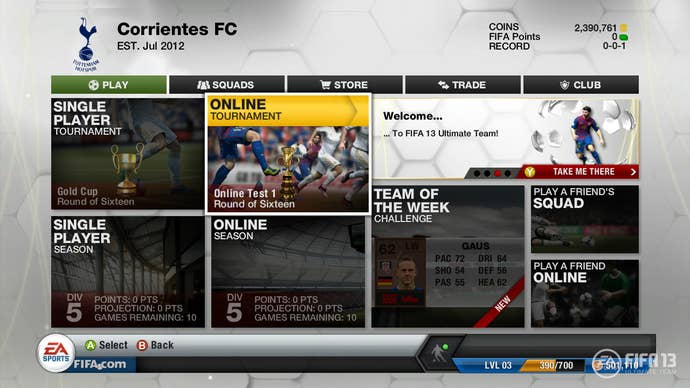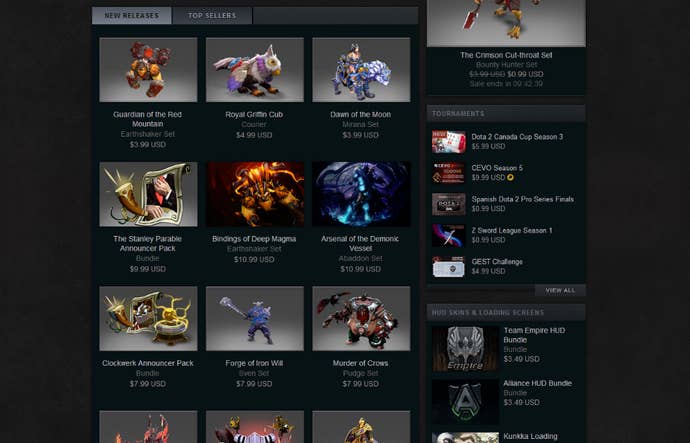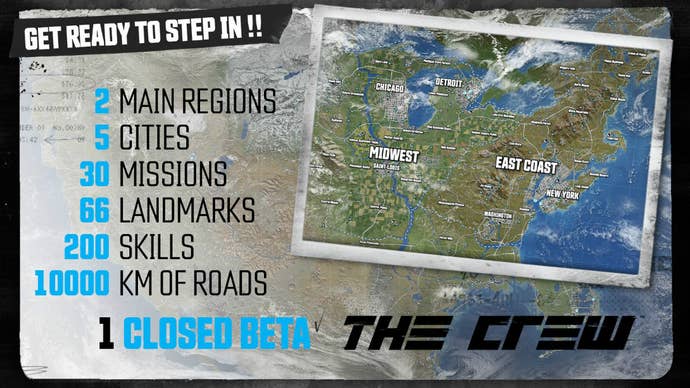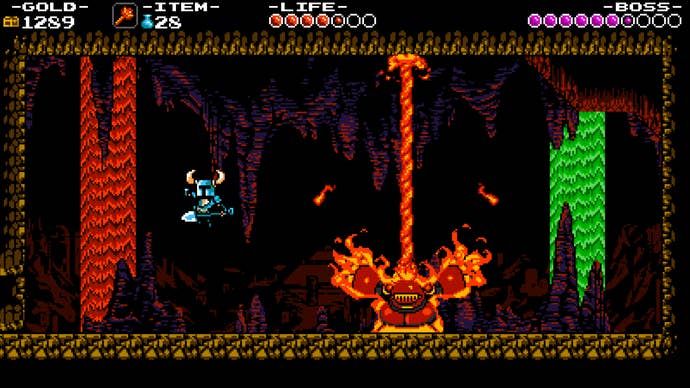Rise of the Lifestyle Game: Gaming as Your Second Job
Some of our games have become so big that you'll be playing them forever.
This article first appeared on USgamer, a partner publication of VG247. Some content, such as this article, has been migrated to VG247 for posterity after USgamer's closure - but it has not been edited or further vetted by the VG247 team.
Over the past week, I've seen the same sentiment three times. While I played The Crew for USstreamer last week. Jaz mentioned how hard it was to play multiple games because most major titles are now "lifestyle games". Then there was this Nerf Now, which talked about games as a second job. Finally, I was talking to a friend who casually plays that admitted that he'd probably only get to one or two games this year and that'd be enough because those games would probably take all his free time.
For our larger titles, much of the gameplay time is taken up by the stuff surrounding the core game: online play, social hooks, downloadable content, achievements, item collection, and virtual currency. These are features that make players load up the same game every day or every other day. Back in the day, you could play through most titles and once you had beaten it, you were done (even if most of us probably didn't finish all our games). These days, developing a big game is expensive, so publishers and developers want to make sure you keep playing until they can release the next big thing.

The industry has a term for this development trend: Games-as-a-service (GaaS). A game that you play until the end and then put away? The business side of the industry views that as a product. They sold it to you and that's the end of the transaction until the next game comes out. Games-as-a-service is about garnering more money and more attention from gamers, keeping those eyeballs on a product forever if need be. It's all about making sure you never stop playing. Here's former Sony Computer Entertainment Europe executive producer Simeon Pashley talking about the point of GaaS:
"Why not just package up your game and move onto something new?" asks Pashley. "Well, I'm sure you've slogged your guts out and put a lot of sweat, blood and tears into making this the best game it can be and you hope your audience appreciates it. Why not maximize all of this effort and keep it going for longer. It's almost trivial to make this content. Making add-on content can be a fantastic way of focusing the team, stopping them adding stuff to the version that's shipping and allow them to expand and maximise the experience."
"All of these extras help create an attachment with your game and a thirst for more content, it's up to you if it's free or paid for," he continues. "Bolting on upgrades and DLC also makes it harder to part company with the game itself when it comes to trade-in time and you'll see lower trade in figures for games that actively promote a long-term connection with the game."
The earliest mention of Games-as-a-service that I can find comes in 2007. Two employees of the Ann Arbor District Library in Michigan wrote an article about running local gaming tournaments, which had the added benefit of bringing young people into the library on a regular basis. The idea pops up again in 2009 at the DICE Summit, with Valve Software founder Gabe Newell talking about his company and entertainment-as-a-service.

"So I'm going to be talking about entertainment as a service, and our experiences at Valve, as we tried to having a connected relationship with our customers," said Newell. "Once you start thinking in terms of a service perspective, once you stop thinking about how can we get as many seats in the theater or have that huge initial rush, it starts to help you understand some of the phenomenon that are out there."
A lot of the early games-as-a-service talk was driven by the ongoing success of MMORPGs. As social and free-to-play started to become larger and AAA publishers saw that there was no reason to have a single boxed product. Titles like League of Legends showed that players had no problem with free-to-play and the returns were clearly worth it. EA transitioned to the model in 2011, for better or for worse.
"We're transforming EA to a games as a service model," said former EA CEO John Riccitiello. "Over the coming years, we will transform EA from a packaged goods company, to a fully integrated digital entertainment company."
None of this is particularly evil. In fact, if you love a certain game, why wouldn't you want more of that game to play? A large of number players are content to buy Call of Duty and play just that for a year until the next Call of Duty comes out. I certainly can't fault or demonize them for that. And it solves a big problem for the industry: high turnover and burnout caused by firing talented developers after a game is shipped. You may need hundreds of people to make a AAA title, but you don't need them in the planning and pre-production phases. If you're always producing new content, there's no need for lay-offs. Studios like Valve and Riot Games can hold onto staff for much longer than other development houses because they're always churning out valuable content.
So here we are today with a quintessential first world problem. There's so much to do and it's hard to even figure out where to start. Everything has online play, deathmatch, co-op, achievements, DLC, daily quests, and more.

The Crew Closed Beta offers up an shrunken version of the entire United States for you to race across, with random challenges and missions for you to complete to level up and get more parts for whichever car you're focused on. Want to upgrade your Atma weapon to Animus level in Final Fantasy XIV? Complete nine books, each with various tasks including monster kills, FATEs, and guildleves. World of Warcraft has a host of daily quests you should complete for reputation or specific gear, and the system is growing even bigger with Garrisons in Warlords of Draenor. Want to play Dota 2 or League of Legends? That requires taking the first steps down a road that will literally never end. You might be a big FIFA fan, but you should probably stay far away from the massive timesink that is Ultimate Team. There's also the endless sandbox experiences like Minecraft, Starbound, Day Z, and Rust; there's no "ending" in the classical sense, you just play until you're done.
If you're trying to play three or four games, it all starts to become a handful. Back in the day, I could knock out a Mega Man X or a Devil May Cry in a week. On the high side, maybe you jumped into an RPG like Baldur's Gate, Final Fantasy, or Dragon Warrior/Quest for 40-60 hours. But on some of the biggest games this year, you won't be done for a long time. There will always be something to do, another quest, another mission, better armor, another achievement.
That's not to say there isn't hope. You'll still find blissful solace in shorter titles. Shovel Knight can be completed in a single day and it's a satisfying experience from beginning to end. Telltale's The Walking Dead and The Wolf Among Us have five-episode seasons, with each episode being around a couple of hours long. Broken Age's second episode will completely wrap up the series. The Witcher 3: Wild Hunt will be big, but there's no randomly-generated quests, so once you've finished everything, you're done. Huzzah!

For me, it's all about managing personal expectations. I used to be the kind of person who could spend hours grinding for a new item or achievement. Now, between work and life, I just don't have the time. Final Fantasy XIV's Atma weapon? I can't even put that on my radar anymore. It's just a beautiful idea for me; once I finally reach that mountaintop, it's likely there will be a new peak ahead of me. I'm finishing up Batman: Arkham Origins, but those extra challenges are getting completely ignored. And the legendary ships in Assassin's Creed IV: Black Flag? I went up against one of them once; that folly illustrated why beating the game was enough for me.
The problem with lifestyle games is you can only juggle two or three lifestyles for limited time. Your best bet is to vacation there for a limited time and move on to something else. Sure, you may miss out on some of the naunce and action that the natives get to enjoy, but there's just so much out there to see these days. You just have to make your choice: depth or breadth. Choose wisely.
[Header Image via Howie's Gaming Shack]

